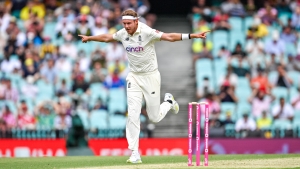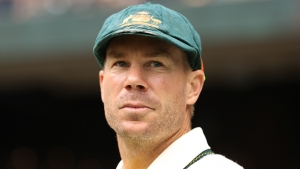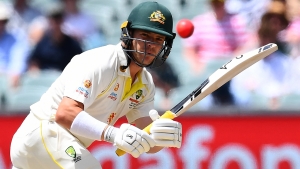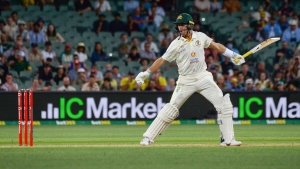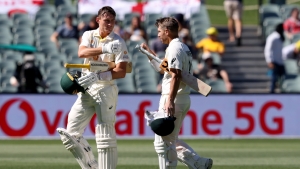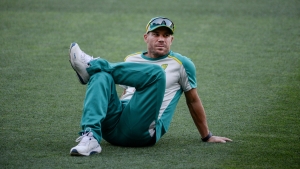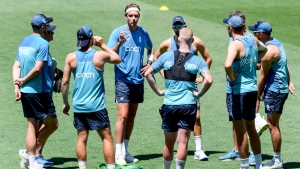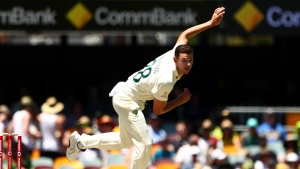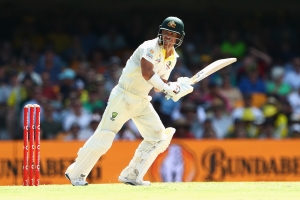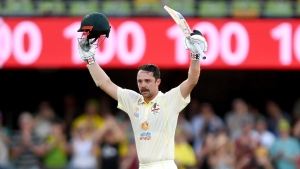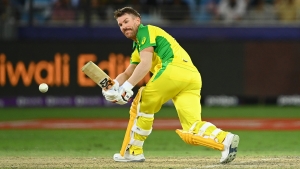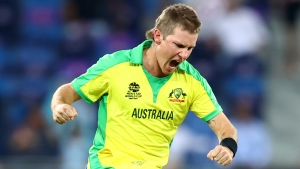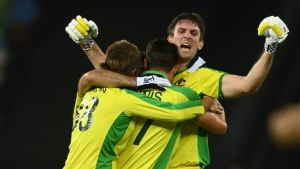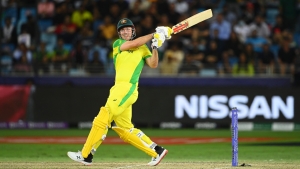David Warner, Jos Buttler and Babar Azam are among those to have been named in the Official ICC Men's T20 World Cup's Team of the Tournament.
The T20 World Cup came to a close on Sunday after Australia beat New Zealand by eight-wickets in the final in Abu Dhabi.
The team was selected by a panel of commentators and journalists.
"As with any team selection there will be varying opinions, and robust discussion on the final composition of the squad," one of those panellists, Ian Bishop, told the ICC's official website. "The panel respects that, and we encourage the strong debate that will ensue.
"This team was incredibly difficult to select over such a highly competitive tournament. Selections were based predominantly on the Super 12 onward to the final.
"We endeavoured to select players as close to their initial team position where possible. This intention was not always a reality, as some compromises had to be made.”
The team includes players from champions Australia, runners-up New Zealand, as well as England, Pakistan, Sri Lanka and South Africa.
David Warner (Australia)
Arguably the most obvious selection as the man who was the ICC's Player of the Tournament. Despite questions about his form before the World Cup, Warner scored an impressive 289 runs at an average of 48.16.
Although he did not top the table for most runs, highest innings or highest average, Warner's impact was unquestionable. His 65 against Sri Lanka, 89 not out against West Indies, 49 against Pakistan in the semi-finals and then 53 in the final were vital for the champions.
Jos Buttler (England)
The hard-hitting Buttler was the only player to score a century at the tournament, while he finished fourth in the list for most runs. His tally of 269 included a fantastic 71 from 32 balls in England’s Super 12 victory over Australia, as well as his 101 not out against Sri Lanka.
Babar Azam (Pakistan)
The top run-scorer and only player to break the 300-run mark (303), Babar has been named as captain of the ICC Team of the Tournament. He scored four fifties at his first T20 World Cup, starting with his 68 not out against old rivals India, which helped lead Pakistan to a memorable 10-wicket victory.
Charith Asalanka (Sri Lanka)
Asalanka came fifth in the list for most runs, which is impressive when you consider Sri Lanka exited at the Super 12 stage. The 24-year-old scored 231 runs at an average of 46.2, including an unbeaten 80 off 49 balls against Bangladesh.
Aiden Markram (South Africa)
Moved to a middle-order role for this tournament, Markram seemed to thrive as his 40 off 36 balls nearly saw the Proteas beat Australia in the Super 12s. An unbeaten 51 from 26 balls against West Indies and 52 off 25 against England was, though, not enough to help South Africa progress.
Moeen Ali (England)
England's ever-reliable all-rounder took seven wickets from his 14 overs during the tournament, as well as hitting 92 runs at an average of 46.
Moeen's bowling figures included 2-17, 2-18 and 2-15 to heap pressure on opponents throughout, while his batting performances included a fine 51 from 37 balls against New Zealand in the semi-finals.
Wanindu Hasaranga (Sri Lanka)
Leg-spinner Hasaranga was comfortably top of the wicket-taking chart with 16, three ahead of Adam Zampa and Trent Boult in joint-second.
This included a hat-trick against South Africa, but like Moeen, Hasaranga also contributed with the bat, striking a vital 71 against Ireland in the first round and a defiant 34 from 21 balls against England in the Super 12s.
Adam Zampa (Australia)
Another spinner who could not be left out, Zampa took 13 wickets and averaged just 5.81 runs against per over, often keeping the run rate down impeccably in the middle overs. The 29-year-old, who his captain Aaron Finch labelled as the player of the tournament, can also boast the best figures of the World Cup with a tremendous 5-19 against Bangladesh.
Josh Hazlewood (Australia)
Like his team-mate Warner, Hazlewood did not top any individual tables but came through with big performances when they were needed. His 11 wickets included a 4-39 against West Indies that played a big part in sealing a semi-final place, before the paceman took a ruthless 3-16 in the final.
Trent Boult (New Zealand)
Boult was the top wicket-taking seamer at the tournament (13) and played a huge role in getting the Black Caps to the final. His average of 6.25 overs conceded per over was impressive considering he was mostly used during powerplays and at the death.
Anrich Nortje (South Africa)
Nortje took a wicket in every match he played at his first T20 World Cup, taking nine overall at an average of 11.55. His most noteworthy contribution was an explosive 3-8 from 3.2 overs against Bangladesh to help skittle the Tigers out for just 84.
12th man: Shaheen Afridi (Pakistan)
The 21-year-old burst into the World Cup with his pace bowling, removing Rohit Sharma, KL Rahul and Virat Kohli in Pakistan's opening game against India. Afridi took seven wickets overall, earning him a spot as first reserve in this star-studded team.
























